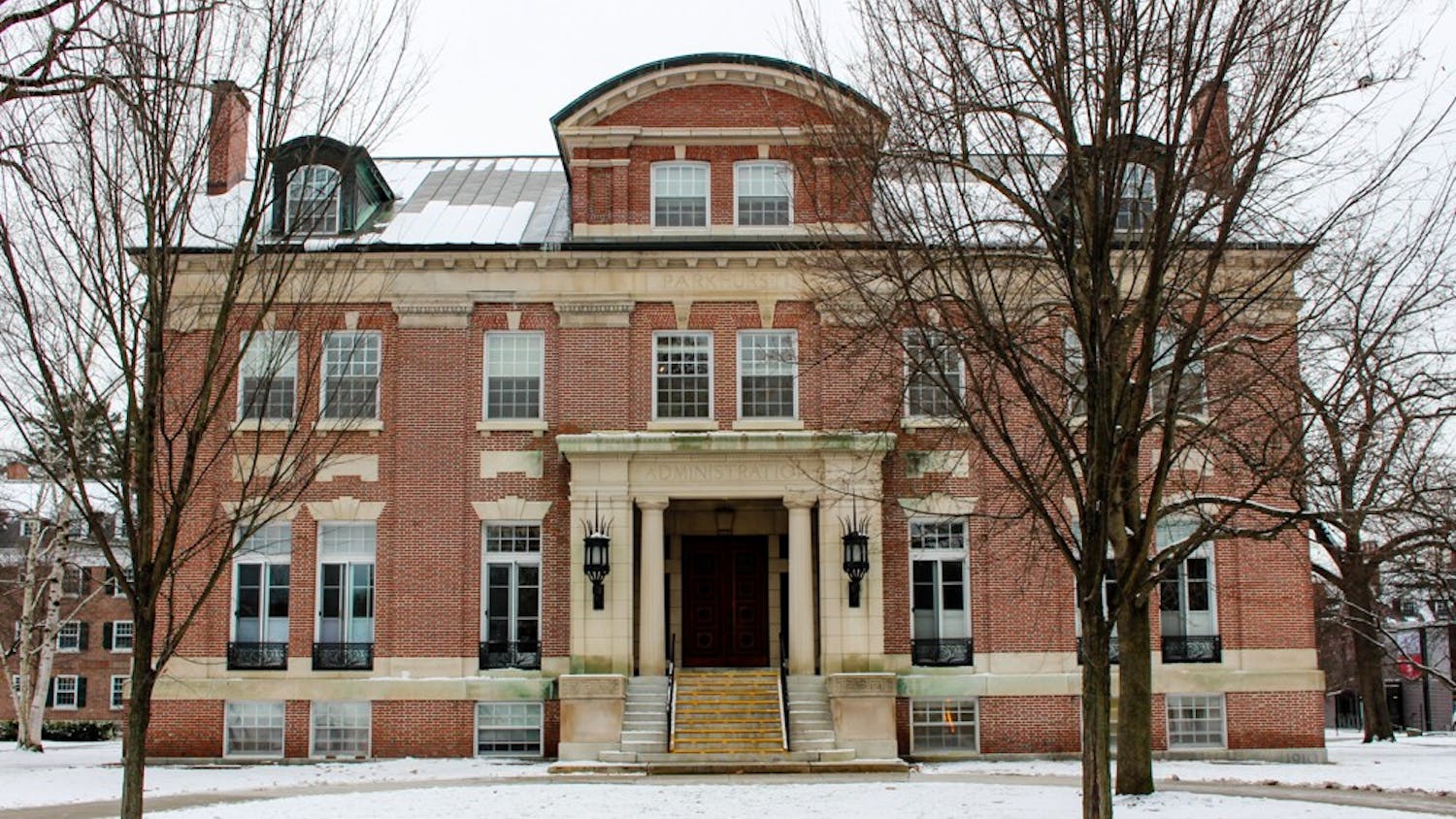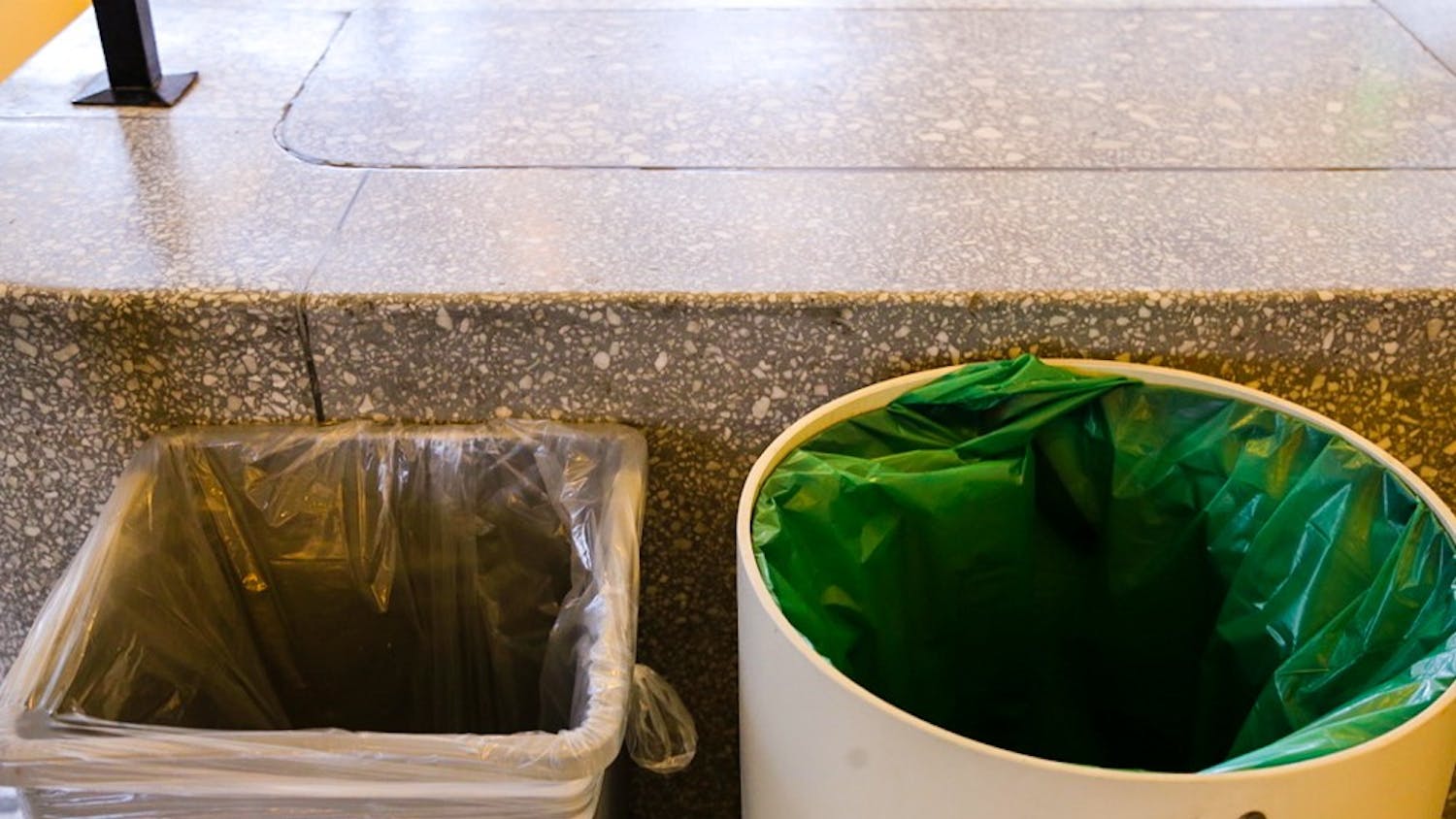From the College’s yearslong quest to replace its central heating system to the adoption of the Green2Go program at the Class of 1953 Commons, green initiatives have, in recent years, taken on greater importance in Dartmouth’s institutional agenda.
Then, COVID-19 struck. The shutdown of the College last March, along with the slow return to campus in subsequent terms, has disrupted sustainability efforts on campus.
For Marcus Welker, the Sustainability Corps program manager in the Sustainability Office, the abrupt shift to remote operations in March prompted the College to focus on cutting down energy consumption specifically in buildings that were no longer in use. Welker, along with colleagues in Facilities Operations and Management, Environmental Health and Safety and other groups, worked to minimize energy usage in buildings by managing temperatures, ventilation and lighting. These efforts meant that the College was able to reduce its average energy consumption by 19% for the period between March and June 2020.
However, with students returning to residence halls in the fall, albeit on a limited-capacity basis, Welker said the College could not afford to significantly reduce energy usage in certain buildings.
“Most of our buildings, particularly our older buildings, you can’t choose to heat or cool every other dorm,” Welker said. “Even though maybe there’s nobody in the room next to you on either side, that building is still basically operating at 100%.”
In a similar vein to COVID-19-era energy usage, the pandemic has also had a mixed impact on the College’s waste. The lack of students, faculty and staff on campus has meant that the overall waste that the College produces is lower than in normal circumstances. From July 2019 through February 2020, the College produced, on average, 223.22 tons of waste per month. In the eight months immediately after COVID-19 shut the College down, the College only produced an average of 98.61 tons of waste per month.
However, a larger percentage of that waste is sent straight to landfill: In the eight months immediately following the pandemic, Dartmouth’s waste diversion rate, or percentage of waste sent to recycling plants and other non-landfill sources, was 10.47% lower than the previous eight months. According to Welker, fears over how COVID-19 might spread led Casella Waste Systems, the College’s waste management company, to refuse much of the College’s recyclable waste in the early stages of the pandemic.
One contributor to the College’s pandemic waste production is Dartmouth Dining.
“[The pandemic] has definitely caused us to use more plastic products than before,” Class of 1953 Commons general manager Brandon Crosby said.
Crosby noted that while ’53 Commons offers reusable Green2Go takeout containers, individual plastic containers are necessary to provide reheatable meals to students in quarantine and isolation.
Dartmouth Dining director Jon Plodzik added that the pandemic has thrown a wrench into other sustainable dining goals.
“There’s a great struggle existing behind the scenes with the supply chain,” Plodzik said. “[It] has affected every single one of our companies that we do business with.”
From local apple growers to major manufacturers like Hormel and Tyson Foods, the pandemic has disrupted the dining supply chain, forcing Dartmouth Dining to scramble to find alternative sources to feed thousands of hungry students. This has forced Dartmouth Dining to sacrifice some of its sustainability initiatives for the short-term goal of keeping food on the table.
For example, Plodzik noted that Dartmouth Dining has turned to individual ketchup packets instead of purchasing in bulk, as communal ketchup dispensers pose a COVID-19 safety risk.
In addition, the disruption in the local supply chain has meant that Dartmouth Dining has had to source more ingredients from out of state, increasing transport costs and greenhouse gas emissions.
These short-term sacrifices have swept through the College, stalling several efforts to conserve energy and reduce waste.
Some of these efforts include the College’s pilot dual stream recycling program, which ran for three terms in the 2019-20 academic year but is absent this year, and the ongoing search for an alternative fuel source for the College’s central heating system, which Welker said has been put on hold.
“Now it’s further down the list,” Welker said. “We’re just trying to not die. We’re all trying not to die while simultaneously providing education. Energy, waste, all of this operational work is still a priority of the institution, it’s just that we now have this global crisis that is heaped on top of it.”
Despite the delays in some sustainability initiatives, others have continued to go ahead, including the construction of the Irving Institute for Energy and Society and the new Center for Engineering and Computer Science, which will both be energy-efficient facilities, and the installation of solar panels on buildings around campus.
Maria Smith-Lopez ’21, the manager of the Sustainability Action Program, which prepares freshmen to work in sustainability initiatives, is convinced that sustainability remains high on the College’s priority list.
“A lot of COVID-related restraints are considered to be more temporary in nature, and using a more wasteful solution might be considered worth it,” Smith-Lopez said. “When we overcome COVID and go back to business as usual, then [the College] can return and try to limit waste in their normal operations.”




